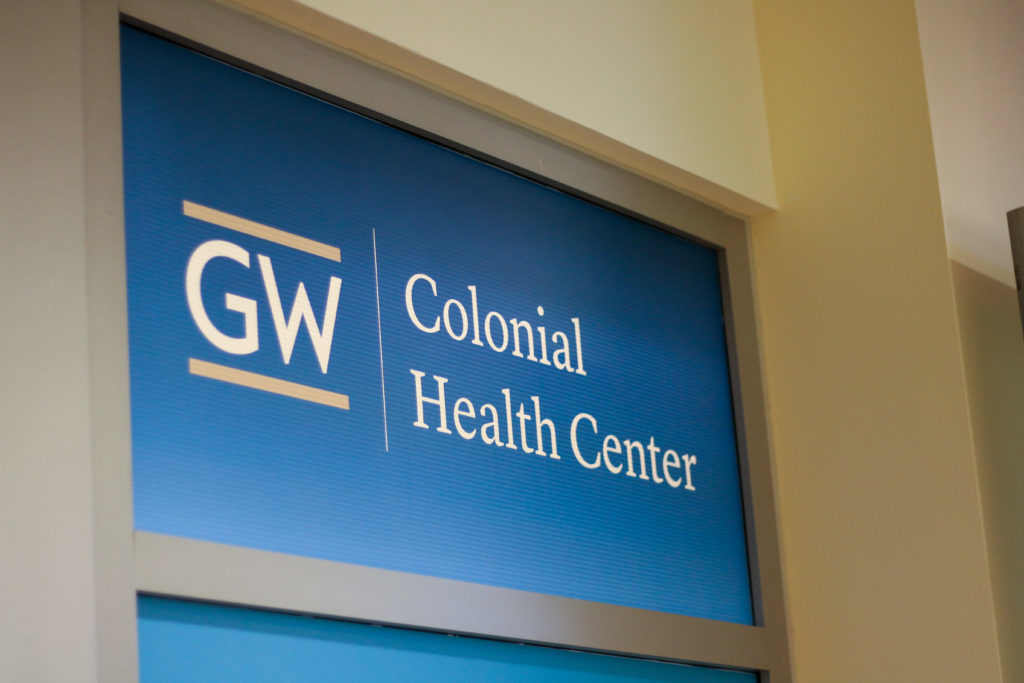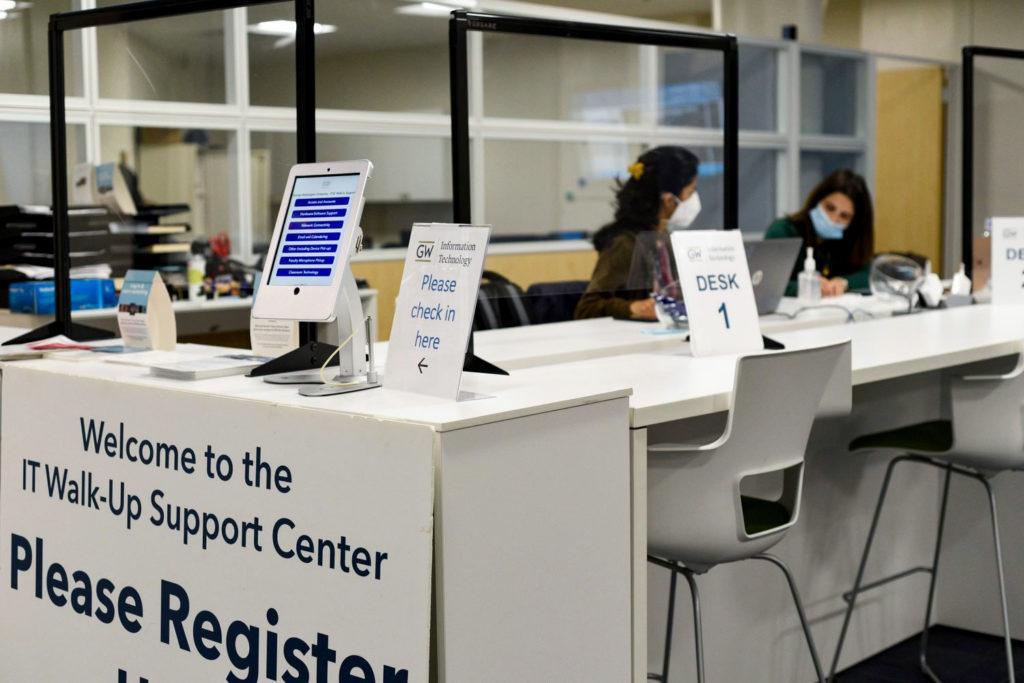Officials raised the cost of GW’s mandatory insurance plan this academic year, which students said may push necessary health care out of reach.
The mandatory annual cost for students enrolled in GW’s student health insurance has risen by $520 during the past two school years from $2,180 in the 2020-21 academic year to $2,700 this academic year. More than 10 students enrolled in the Student Health Insurance Plan said the coverage decreases out-of-pocket medication costs, but the price tag may worsen financial strains for those who are struggling to afford GW’s tuition.
The insurance plan provides benefits, like 100 percent contraceptive and prescription coverage after a $100 deductible and a waived annual deductible for GW Counseling and Psychological Services, through Aetna Student Health.
University spokesperson Julia Metjian said Aetna sets the insurance prices annually, months in advance of the academic year, accounting for inflation and medical bills the company must cover, which have mounted since the start of the pandemic. She said Aetna set the insurance price for the 2020-21 academic year before the company was aware of the pandemic’s “ongoing impact” and increased the price this school year to cover medical treatment amid higher demand.
“As more students use the services, the insurance company must pay more, and in turn there was a price increase in 2022-23 to help pay for increased use of services,” Metjian said in an email.
Students enrolled in the health insurance plan can receive immunizations and physical examinations at the Student Health Center at no cost, according to the Aetna Student Health Plan Design and Benefits Summary for GW. Students enrolled in the plan can also receive medical treatment at local Aetna participating network providers, which include GW hospital and the Medical Faculty Associates.
Officials began to automatically enroll in the student health insurance plan unless they provide proof they already have insurance in the fall 2018 semester, a move that slashed the annual cost of the health insurance plan from $4,103 to about $2,750 in hopes of making the program more accessible for students.
Graduate fellows, graduate assistants and graduate research assistants may choose to opt into student insurance as a “lower” cost insurance option.
Metjian said about 5,000 undergraduate students are enrolled in student insurance each academic year, and an additional 650 students opt into the plan each year because their family doesn’t have insurance coverage in the D.C. area or they do not have insurance. She said about 8,500 undergraduate and graduate students eligible for insurance opt out of the plan each academic year and use their family’s insurance for coverage.
“Undergraduate students who want to opt out of the University coverage because they are still covered by their parent’s or have their own domestic-based health insurance must complete the waiver process each year,” Metjian said.
Students can complete an online form that requires them to submit information on their family’s domestic insurance to waive their student health insurance enrollment, according to the University Health Plans website.
Syracuse University charged students $2,347 for health insurance in the 2022-23 academic year for their “premium plan,” $353 less than GW’s $2,700 annual cost. Boston University charged a $3,235 for their “basic plan,” $535 higher than GW’s annual price. Tufts University charged $4,044 for their “individual” student plan, $1,344 higher than the annual charge at GW.
Students enrolled in GW’s health insurance said the student insurance decreased costs for medication and treatments, but because Aetna only offers 24 network providers for mental health professionals in Foggy Bottom, the coverage falls short of providing comprehensive care outside of the Student Health Center. They said the SHC Team notifies them of their automatic enrollment in student health insurance and the cost through email at the beginning of their enrollment term, which can be annual, fall, spring and summer or summer only.
Rachael Clark, a sophomore studying international affairs, said the price increase “surprised” her and her parents. She said many mental health care providers in D.C. do not accept Aetna insurance, and she could potentially be paying $300 to $400 per session for mental health services outside GW.
She said she has sought mental health treatment at Counseling and Psychological Services, which is at no cost to students enrolled in the University’s health insurance, but the services only last for about nine months until students are asked to seek support off campus. Clark said the walk-in session hours at CAPS, which span from noon to 4 p.m. daily, are inconvenient because they intersect with her class schedule during the day.
“I’m usually in class at that time, and I’ve had to skip classes just to sit around and call insurance offices and billing and whatnot,” Clark said.
Michael Casey, a senior majoring in creative writing and English, said he has “sparsely” taken advantage of his student health insurance to avoid the “high” copay because he had to pay about $200 out of pocket to treat a knee injury, although the health insurance prevented a higher cost.
“It would have been more than $200, but $200 is still pretty ridiculous,” Casey said.
He said he had to enroll in GW’s student health insurance plan because his family’s insurance does not provide coverage outside of New York. Casey added that insurance companies should provide nationwide insurance so students don’t have to enroll in their universities’ insurance and face “expensive” costs.
“Just kind of crazy because what if I just happened to die in New Jersey?” Casey said.
Jedson Boyle, a freshman majoring in political science, said his student insurance decreased the cost of his prescription by about $110.
Boyle said officials should specify year-to-year increases to insurance prices in their emails at the start of each enrollment term.
“They may have felt that they had no choice, but I would have preferred that it didn’t fall on the backs of the students who need health insurance,” Boyle said.
Dylan Ebs, Jennifer Igbonoba and Nicole Sandrik-Arzadi contributed reporting.











